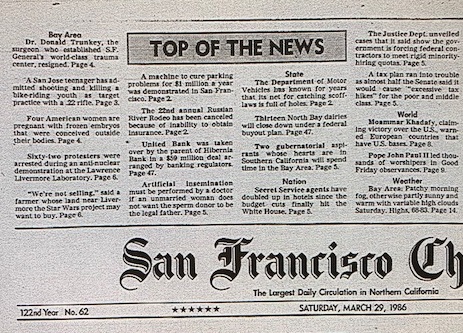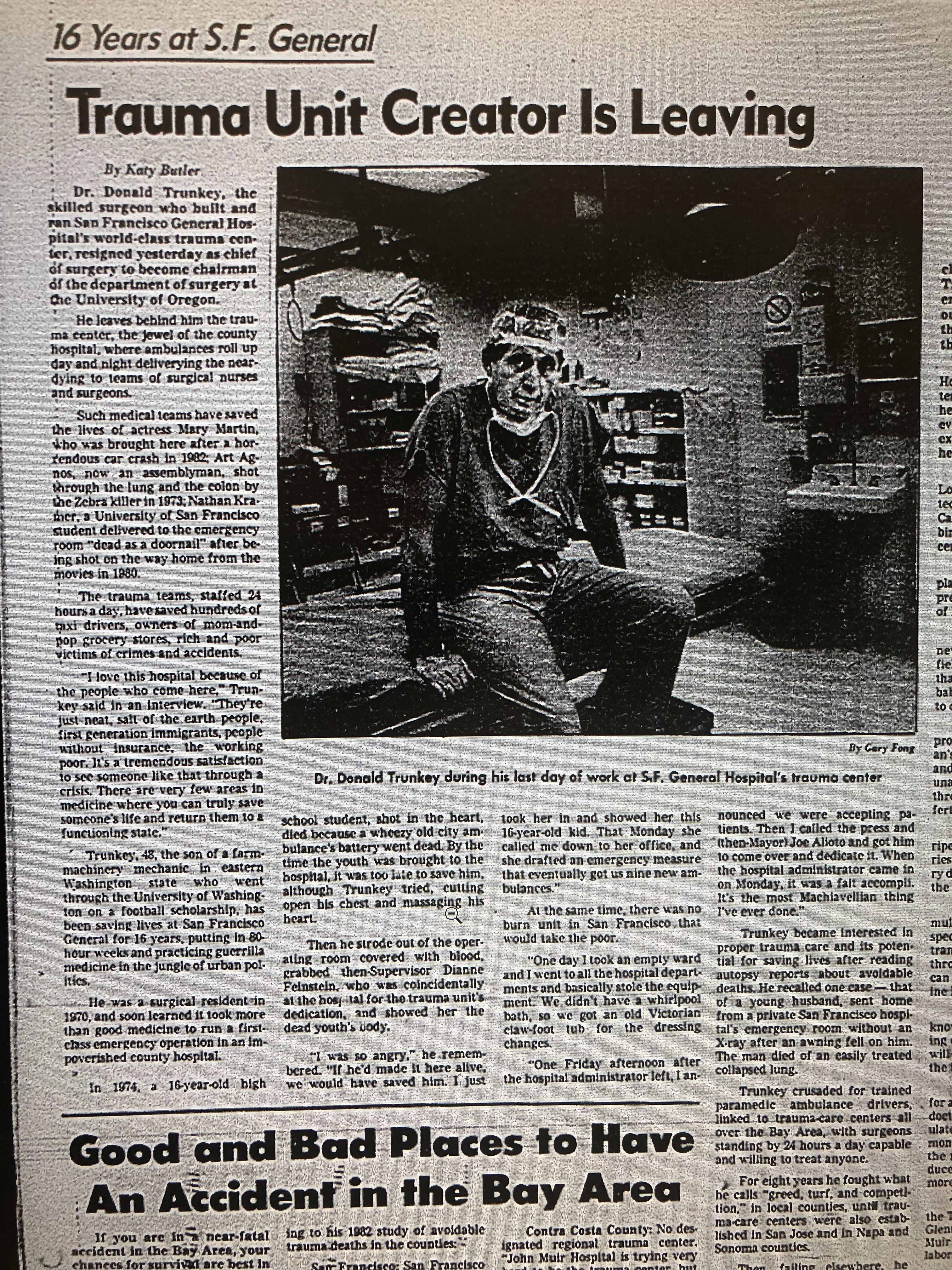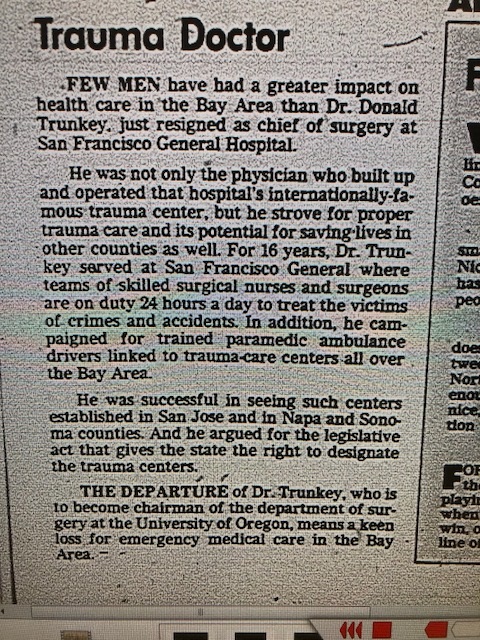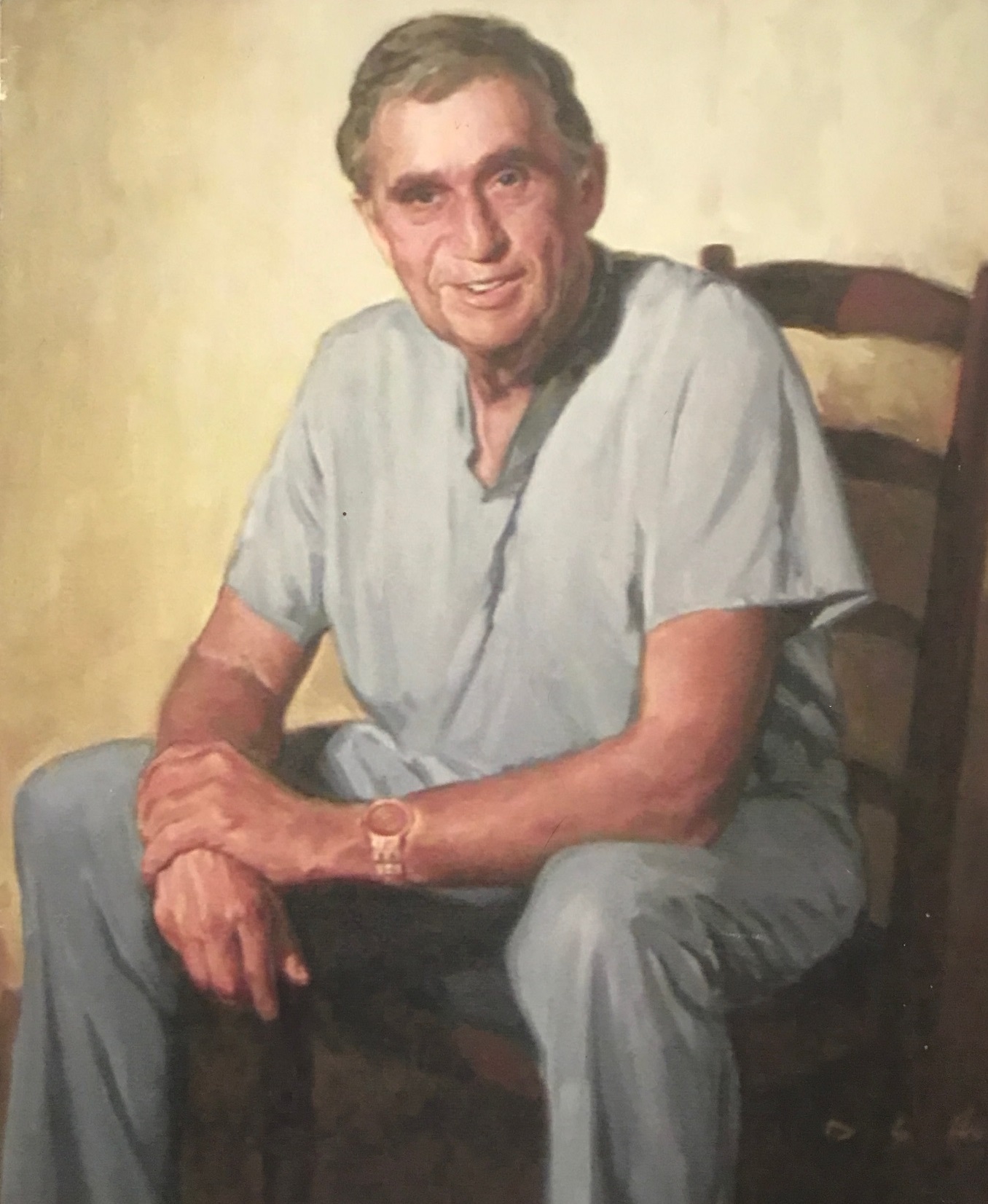My Dad has really always been impressive to me. Growing up, he seemed to always be a little stronger, faster, and smarter at everything than me (and most other people too). He was an incredible athlete (I think he played 3 sports in high school and basket ball at WSU) and could beat me at everything, even ping pong which I played a lot as a kid. I once saw him throw a grown man over his shoulder out of a raft into the river in a water fight with only one hand on his life jacket. He has close to a photographic memory. He read about a book a week — usually history — and would remember most of it. He knew many constellations and individual stars that I just couldn’t retain the same way.
But it took me awhile to realize that he was a really big deal in the world of medicine. I noticed the respect that the other doctors, residents, and nurses had for him on the rare occasion when I visited at work. He was occasionally in the news paper and in 1978 he stared in an episode of Lifeline. That was amazing, but it was more about how he saved individual lives. My Dad’s true superpower was changing policy to save people by the thousands. He has a no-nonsense honesty and sincerity that either inspires or offends. He challenged the status quo and stepped on a lot of toes. He was hard to please but sincere in his praise when he gave it. I hope to have other doctors write more about his effect on policy as they know the details better than I do.
One of the biggest examples of when I realized what a big deal he is, was at the party in 1986 that the hospital threw for my dad when he moved to Oregon. I heard many incredible stories that night about my dad. The main roast was by the mayor or former mayor and he had the audience roaring. I wish I had it all on video but I don’t. Please share your stories below if you were there.
One story was about how he opened the burn unit while the hospital administrator was out of town. He invited the Mayor and the media so that it would be awkward to close right away. This part is captured in the newspaper article below. I also heard stories about the Moscone-Milk shootings, my dad threatening to fire doctors that wouldn’t treat AIDS patients, a patient with an arrow in his backside, a mugging victim shot in the heart in the alley behind the hospital (he lived), and numerous other amazing medical feats.
To view the article: right click and save image to computer, then zoom in. Apparently, the big paper in The tech city is not yet digitized.





